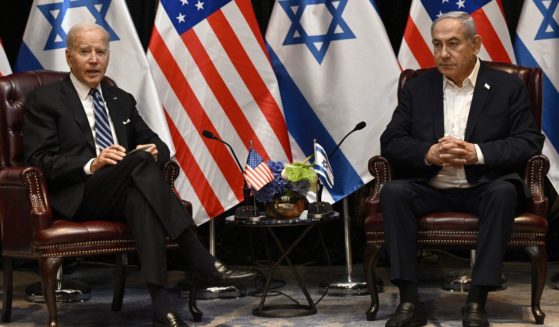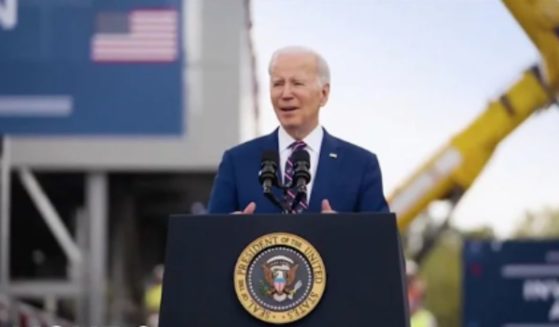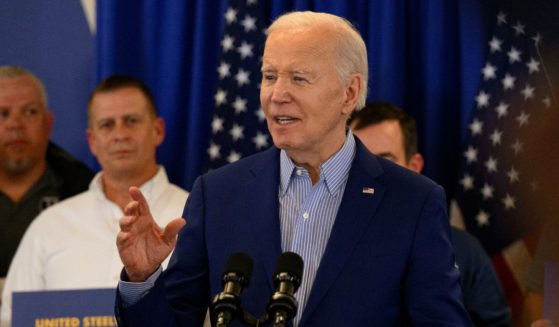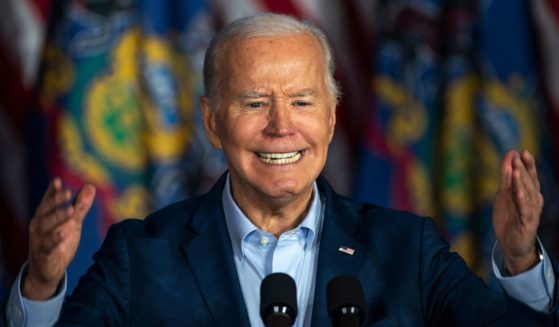DeSoto: Dems Try To Snatch Defeat from Victory with Iran War Powers Resolution Against Trump
House Democrats appear determined to snatch defeat from victory in the aftermath of President Donald Trump’s decision to take out Iranian Quds Force commander Qassem Soleimani last week in Baghdad.
Tehran retaliated with missile strikes into Iraq on Tuesday night that resulted in no American or Iraqi casualties and minimal damage to installations housing U.S. military personnel.
Both Iranian leadership and Trump have communicated they do not seek further military action; in fact, Trump said Wednesday he wants to open negotiations with Iran.
Nevertheless, House Speaker Nancy Pelosi announced Thursday the House would pass a “war powers resolution to limit the president’s military actions. The administration must de-escalate and must prevent further violence. America and the world cannot afford war.”
The speaker said the purpose of the resolution is “to protect American lives and values.”
Democrat Rep. Elissa Slotkin of Michigan introduced the resolution, known as H. Con. Res. 83.
“The killing of Iranian General Qassem Soleimani, as well as Iran’s ballistic missile attack on Iraqi bases, risks significant escalation in hostilities between the United States and Iran,” the resolution states in part. “Congress has not authorized the President to use military force against Iran.”
The resolution is expected to be “privileged,” which will force the Senate to vote on it too.
Republicans hold a narrow 53 to 47 majority in the Senate and at least two in the GOP ranks, Sens. Rand Paul of Kentucky and Mike Lee of Utah, have criticized Trump’s decision to eliminate Soleimani.
If Paul, Lee and two more Republicans defect, the Democratic resolution could pass Congress.
The House resolution, as currently drafted, would not go to the president for his signature and therefore does not have the force of law, but of course undermines Trump before the eyes of the Iranians nonetheless.
What message do Pelosi and her fellow Democrats think passing such a resolution sends to Tehran? Maybe push Trump to respond militarily and Congress will pass legislation truly tying his hands.
Do the Iranians fear how Trump would respond to future provocations more or less thanks to this current resolution?
Does an emboldened Iran and a hamstrung president make Americans more or less safe?
Remember, he did not order the hit on Soleimani in a vacuum, but rather exercised great restraint in not responding militarily beforehand.
It was the culmination of a series of recent provocations.
These included using proxies to strike U.S. forces in Iraq, seizing ships in the Persian Gulf, attacking a Saudi Arabian oil field and shooting down U.S. drones.
Of course, the most recent act of aggression was an Iranian-backed militia launching a rocket attack at a U.S. base in Iraq last week, which resulted in the death of an American and the wounding of four other U.S. service members.
This same group then breached the outer defenses of the U.S. Embassy in Baghdad, and had they had broken through, would no doubt have killed and or captured more Americans.
When Trump green-lit the killing of Soleimani, the Iranian general was meeting with Abu Mahdi al-Muhandis, the deputy commander of Iran-backed militias responsible for these attacks.
Something tells me they were not meeting to plan their next family vacation together or to trade gardening tips.
Foreign policy and national security experts from across the political spectrum found the recent exchange of hostilities between the U.S. and Iran resulted in a victory for Trump and America.
Ian Bremmer with the Eurasia Group, who described himself a “far from a Trump supporter,” told CNN, “This is a win for Trump. And it’s clear that it is.”
“Their response has been the minimum possible military engagement against the Americans,” Bremmer said of the Iranians. “That is wildly de-escalatory.”
His overall assessment: “Iran is weaker today than it was when Trump became president.”
James Carafano — a national security expert with the conservative Heritage Foundation — said he agrees with Bremmer.
“Trump clearly emerges from this last round of confrontation the winner,” Carafano told The Western Journal.
“The administration has not backed off its maximum pressure strategy at all and the longer it remains in place the more the regime is isolated; the weaker the economy; the more internal domestic discord; the more the surrogates are undercut; the more support the U.S. has in the region — the more the regime is humiliated that it is powerless to break the American stranglehold,” he explained.
Trump, rightly, responded to Pelosi’s resolution saying he would not commit to seeking congressional approval before taking further military action against Iran.
“It would all depend on the circumstance,” he told reporters at the White House on Thursday.
“I don’t have to, and you shouldn’t have to be able because you have to make split-second decisions sometimes. Sometimes you have to move very, very quickly,” Trump said.
President @realDonaldTrump:
“You know what bothers me? When I see a Nancy Pelosi trying to defend this monster from Iran who killed so many people. So many people are walking around now without legs and without arms… I think that’s a very bad thing for this country.” pic.twitter.com/SOBjpPeJkA
— Daily Caller (@DailyCaller) January 9, 2020
“You know what bothers me?” the president continued. “When I see a Nancy Pelosi trying to defend this monster from Iran who’s killed so many people. … So many people are walking around now without legs and without arms.”
“When Nancy Pelosi and the Democrats want to defend him, I think that’s a very bad thing for this country.”
The last time an American president took such a bold move toward the Iranian regime was in 1988, when then-President Ronald Reagan directed the U.S. Navy to take out two Iranian oil platforms.
The move was in response to Iran disrupting the flow of oil through the Persian Gulf region, including the placing of a mine that crippled a U.S. Navy frigate, while injuring several sailors.
The New York Times reported a naval engagement between the two nations occurred in which U.S. warships “sank an Iranian missile patrol boat that approached and fired on them.”
“Later, jets from the aircraft carrier Enterprise sank or badly damaged three large armed speedboats that were shelling oil facilities or merchant ships. And in two other incidents, the Navy’s ships and planes severely damaged two Iranian frigates that fired on American ships and aircraft,” according to The Times.
The result of the engagement was that Iran backed down, and there was no wider war. Reagan’s “Peace through strength” doctrine prevailed, once again.
Not much was heard from Iran toward the U.S. for years afterward.
Trump’s strike on Soleimani was clearly intended to reset the deck by re-establishing deterrence. Tehran seemed shocked by the U.S. move.
After launching its face-saving retaliatory missile attack on Tuesday, Iranian Foreign Minister Javad Zarif announced, “We do not seek escalation or war.”
Trump said on Wednesday, “Iran appears to be standing down, which is a good thing for all parties concerned.”
It sounds like the de-escalation Pelosi’s resolution seeks has already taken place.
The only thing that can change the powerful position America has now gained is if the Democrats succeed through their ill-conceived, politically motivated resolution to turn victory into defeat.
Truth and Accuracy
We are committed to truth and accuracy in all of our journalism. Read our editorial standards.












